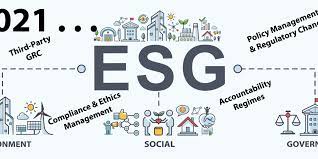CCOs: Expert Problem Solvers

If you follow my blog, you know that I am passionate about the compliance profession. Chief compliance officers have unique talents, expertise and leadership qualities. CCOs are committed ethics warriors. No one else can claim that same mission.
CCOs are the natural stewards of a company’s ethical culture. Of course, a company can appoint a separate chief ethics officer to distinguish between the ethics and compliance functions. There is nothing wrong with that so long as responsibilities are made clear.
If the CCO is also responsible for ethics, the CCO title should be transformed into Chief Ethics and Compliance Officer (“See-Co”). And ethics should always be listed before compliance. A company’s program should be an “ethics and compliance” program. I know that sounds like a trivial detail, but I think the symbolism is significant.
CECOs have significant responsibilities and a unique vision across the organization. The success of a CECO turns on his/her ability to lead on ethical decision-making, line-of-sight across the organization, and a mission to embed and promote ethical conduct in every aspect of the business. This latter point places CECOs in the role of a problem solver.

Perhaps most importantly, CECOs are familiar with the design and implementation of company-wide controls that have to be owned, managed and maintained by the business. Ethics and compliance, by definition, has to be the responsibility of the business. CECOs do not have enough resources, time and authority to supervise every employee, every activity, every transaction. CECOs are experts in building a team effort to ensure corporate ethics and compliance. They have the expertise needed to lead the business in taking responsibility for ethics and compliance. It is their job and they know how to do it.
When an organization faces real operational challenges, CECOs can provide effective leadership, given their unique role and perspective across the organization.

ESG is a new and important challenge for every company. It is gaining steam because it links together two important but interdependent trends – the need for corporations to adopt a broader vision of success and the desire for corporate action and accountability. Naturally, companies are looking to CECOs to play a significant role in ESG. Again, that makes sense.
CCOs have to contribute to ESG and can leverage their own roles to gain resources and improve their own ethics and compliance programs. But CECOs cannot take on full responsibility for ESG. It is too large a responsibility and would only dilute a CECO’s ability to manage and maintain an effective ethics and compliance program. CECOs have the skillset to help a company achieve ESG objectives. While that may be true, CECOs have to preserve their position in the corporate governance world.
















1 Response
[…] CCOs as problem solvers. Mike Volkov in Corruption Crime and Compliance. […]